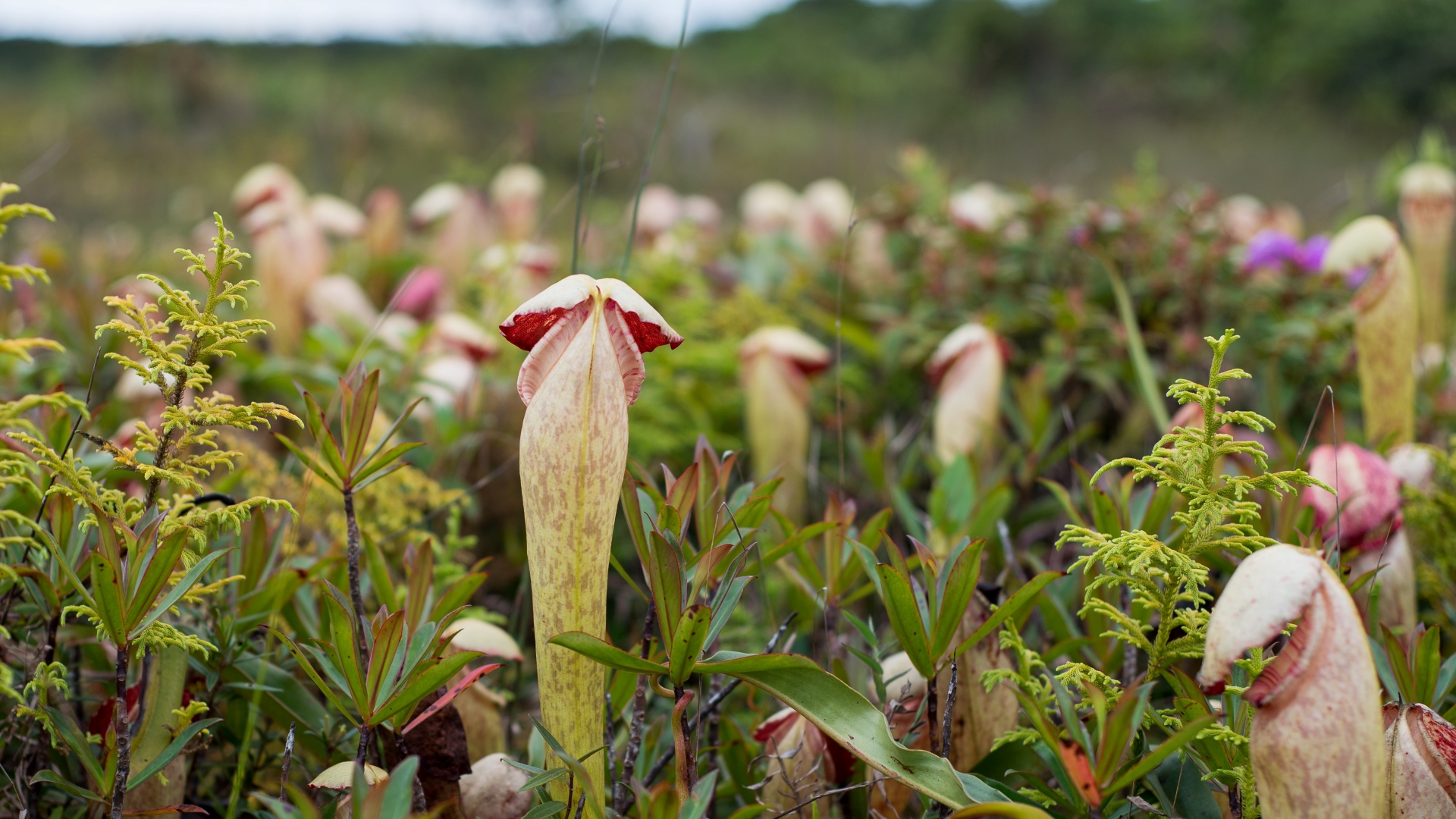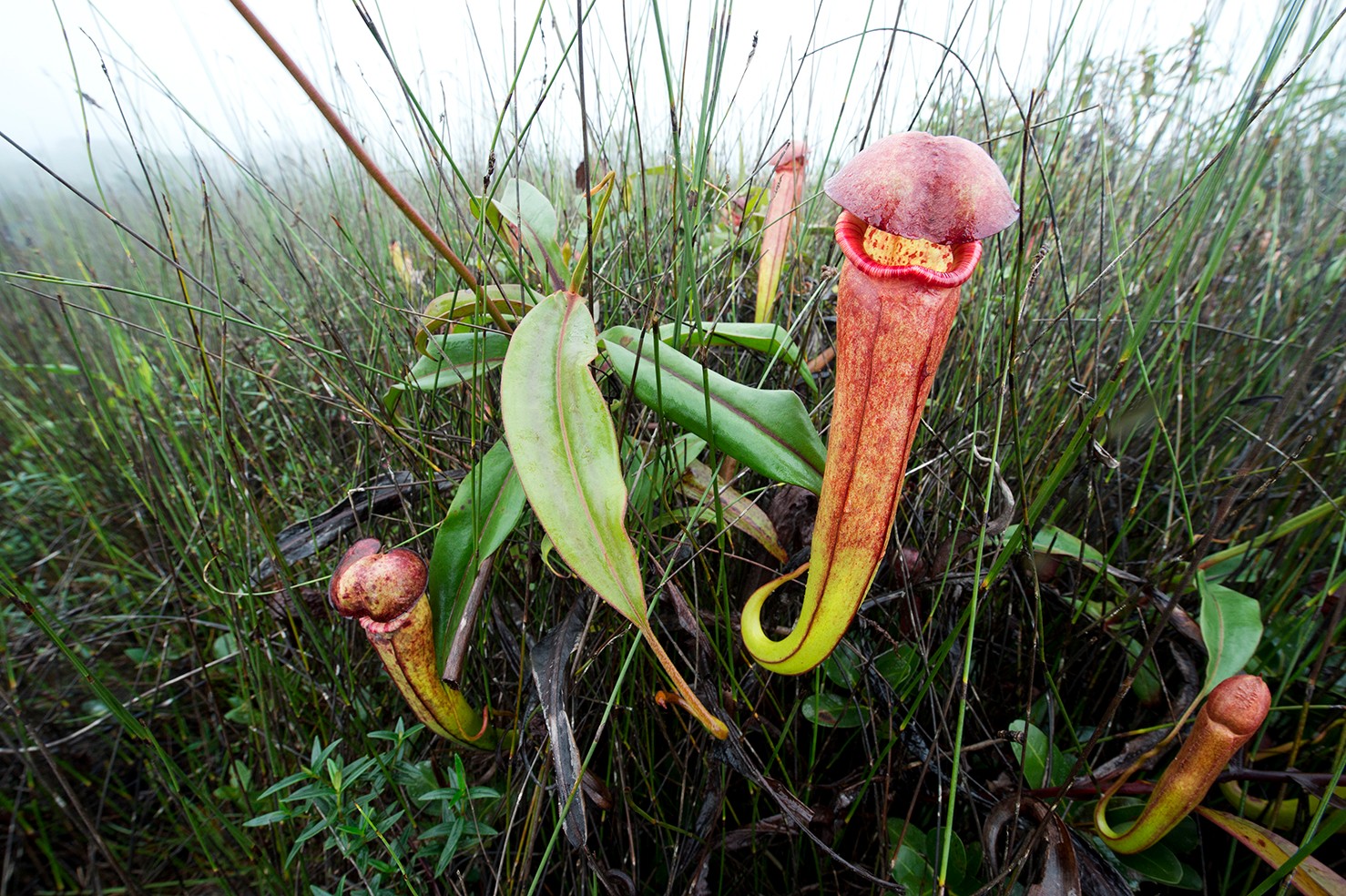Stop picking carnivorous penis plants, Cambodian environmental officials plead
People picking penis pitcher plant poses problems.

The Cambodian government recently asked people to stop picking a rare carnivorous plant that, when viewed from a certain angle, looks a lot like human male genitalia.
The Cambodian Ministry of Environment shared images on Facebook of three women snatching up pitcher plants and posing with them, and ministry officials requested that members of the public leave the rare plants alone, Cambodian news website the Khmer Times reported.
"What they are doing is wrong and please don’t do it again in the future!" The Ministry of Environment wrote on May 11 in the Facebook post. "Thank you for loving natural resources, but don’t harvest so it goes to waste!"
Some news websites have reported that this plant is Nepenthes holdenii, but it's actually a closely related species called Nepenthes bokorensis, Jeremy Holden, a freelance wildlife photographer who first discovered N. Holdenii, and François Mey, a botanical illustrator who described both species, separately told Live Science.
Related: Here's how plants became meat eaters
N. holdenii and N. bokorensis are similar in appearance and both only occur on nearby mountain ranges, which may explain the confusion. However, N. holdenii is the rarer of the two species and only a few researchers know where to find it.
"My plant [N. holdenii] grows at a few secret locations in the Cardamom Mountains," of southwestern Cambodia, Holden said. "Bokorensis occurs on the far more accessible Phnom Bokor, which has undergone extensive development in recent years."
Sign up for the Live Science daily newsletter now
Get the world’s most fascinating discoveries delivered straight to your inbox.
The Ministry of Environment's Facebook post and photos were responding to a video filmed on May 11 that showed the women picking the plants, according to Newsflare, a website that buys and licenses videos. This isn't the first time the government has issued a warning against harming the phallic and photogenic plants; senior officials at the ministry asked tourists not to pick N. bokorensis and N. holdenii in a statement in July 2021, because the activity could drive the plants to extinction.

Nepenthes plants survive in low-nutrient soil by supplementing their diet with live insects, using their nectar and a sweet scent to attract prey. "When you smell a bokorensis pitcher, it smells sweet — just like a candy," Mey said.
Insects feed on nectar around the mouth of the plants' modified leaves that, when mature, resemble pitchers. When insects fall inside the pitchers, they drown in digestive fluids and the hungry plants absorb their nutrients. A pitcher plant's phallic resemblance is most pronounced when Nepenthes' leaves are still developing and the pitcher is closed.
The natural habitats of carnivorous pitcher plants in Cambodia have declined due to agricultural expansion on private lands and the growth of the tourism industry into protected areas, according to a 2021 study in the Cambodian Journal of Natural History.
Mey noted that while the phallic appearance of the plants is "fun," picking them could jeopardize their survival.
"If people are interested, even in a funny way, to pose, to make selfies with the plants, it's fine," he said. "Just do not pick the pitchers because it weakens the plant, because the plant needs these pitchers to feed."
Originally published on Live Science.

Patrick Pester is the trending news writer at Live Science. His work has appeared on other science websites, such as BBC Science Focus and Scientific American. Patrick retrained as a journalist after spending his early career working in zoos and wildlife conservation. He was awarded the Master's Excellence Scholarship to study at Cardiff University where he completed a master's degree in international journalism. He also has a second master's degree in biodiversity, evolution and conservation in action from Middlesex University London. When he isn't writing news, Patrick investigates the sale of human remains.









